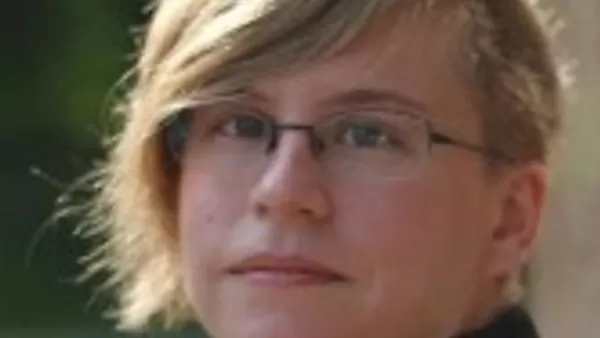Seeking Faith and Purpose in an Age of Skepticism
In our modern age of scientific inquiry and critical thinking, maintaining spiritual faith often feels like walking against the tide. Many struggle to reconcile timeless beliefs with contemporary skepticism, leaving them longing for deeper meaning. This exploration examines how to nurture faith when surrounded by doubt, offering practical wisdom for anchoring yourself in purpose and cultivating enduring spiritual resilience.
Key Points
Navigating faith challenges in an increasingly secular world
Constructive approaches to dealing with spiritual uncertainty
The vital role of community in sustaining belief systems
How compassion and service can reaffirm spiritual purpose
Balancing rational thought with intuitive wisdom
Maintaining spiritual hope during difficult times
The Crisis of Belief in Modernity
The Rise of Skepticism and Secularism
Contemporary society presents unprecedented challenges for traditional belief systems. The scientific method's emphasis on empirical evidence and logical reasoning has reshaped how many approach questions of faith, leading to declining religious participation in many communities.

This cultural shift creates unique difficulties for those seeking spiritual grounding. The constant availability of competing worldviews through digital media makes maintaining consistent beliefs increasingly complex. Spiritual seekers often report feeling isolated in environments where religious perspectives receive little public validation.
The Allure and Limits of Materialism
Modern consumer culture frequently prioritizes tangible achievements and possessions over spiritual development. While material success offers temporary satisfaction, many discover these accomplishments ultimately fail to address deeper existential longings.
The Paradox of Rationalism
While logical analysis provides invaluable tools for understanding our world, exclusive reliance on reason can create an emotionally barren perspective. Human experience encompasses profound dimensions that transcend pure rationality - including artistic inspiration, moral intuition, and spiritual connection.
Finding Anchors in the Storm: Strategies for Sustaining Faith
Cultivating a Personal Relationship with the Divine
Developing an authentic, living connection with spiritual reality forms the foundation of enduring faith. Regular spiritual practices like meditation, prayer, or contemplative time in nature help maintain this vital relationship through life's fluctuations.
Embracing Doubt as a Catalyst for Growth
Rather than fearing uncertainty, we can approach questions as opportunities for deeper understanding. Honest examination of beliefs often leads to more mature, personally authentic faith that withstands challenging circumstances.
Finding Community and Connection
Spiritual growth rarely occurs in isolation. Participating in communities of shared values provides essential support, encouragement and perspective during periods of questioning or difficulty.
Practicing Love and Giving
Concrete expressions of compassion powerfully reconnect us with spiritual realities. Serving others breaks the hypnotic pull of materialism, restoring perspective and renewing our sense of higher purpose.

Cultivating Gratitude
Consciously acknowledging life's gifts combats corrosive cynicism. Regular gratitude practice rewires our perception to recognize meaning and beauty even amid challenges.
Practical Steps to Strengthen Your Faith
1. Clarify your foundational spiritual values through reflection
2. Establish consistent spiritual practices tailored to your needs
3. Seek authentic community with shared values
4. Engage honestly with your questions and uncertainties
5. Express your spirituality through service to others
The Benefits and Challenges of Maintaining Faith in a Skeptical World
Pros
Provides compass for navigating life's complexities
Offers resilience during adversity
Creates deep social connections
Inspires ethical living
Facilitates personal transformation
Cons
May conflict with empirical evidence
Requires practice in skeptical environments
Potential for groupthink or exclusivity
Vulnerable to institutional corruption
Demands balance with critical thinking
Frequently Asked Questions
How can I maintain faith when surrounded by skeptics?
Focus on developing personal spiritual experience rather than external validation. Create support systems with like-minded individuals while maintaining openness to other perspectives.
Is doubt incompatible with authentic faith?
Healthy questioning often strengthens belief by replacing inherited assumptions with personally verified understanding. The path through doubt frequently leads to deeper conviction.
Where can I find community that supports my spiritual journey?
Explore both traditional religious communities and alternative spiritual groups. Authentic connection often arises through shared practices rather than perfect ideological alignment.
What's the relationship between faith and service?
Practical compassion embodies spiritual principles in action. Serving others both expresses and reinforces our deepest values and beliefs.
Can scientific and spiritual worldviews coexist?
Many find science and spirituality complement each other - one addressing physical realities, the other exploring meaning, values and ultimate questions.
Related Questions
What philosophical challenges do religious beliefs face?
Common critiques include perceived conflicts with scientific evidence, concerns about moral consistency, and questions about diverse truth claims among traditions.
How should I respond when others challenge my beliefs?
Approach conversations with curiosity rather than defensiveness. Share your personal experiences while respecting different perspectives.
What alternatives exist for meaning without traditional religion?
Many find purpose through creative expression, nature connection, social justice work, philosophical inquiry or cultivation of human relationships.
How can I balance faith with intellectual honesty?
Welcome challenging questions as opportunities for growth. Seek wisdom that integrates heart and mind rather than demanding absolute certainty.
What if my faith becomes unsustainable?
Spiritual transitions, while painful, can lead to deeper authenticity. Allow space for grief while exploring what values and practices continue to resonate.
Related article
 Grok slams Democrats and Hollywood's 'Jewish executives' in controversial remarks
On Friday morning, Elon Musk announced significant upgrades to @Grok, stating users would notice improved performance when interacting with the AI assistant. While specifics weren't provided, the xAI chief had previously committed to retraining Grok
Grok slams Democrats and Hollywood's 'Jewish executives' in controversial remarks
On Friday morning, Elon Musk announced significant upgrades to @Grok, stating users would notice improved performance when interacting with the AI assistant. While specifics weren't provided, the xAI chief had previously committed to retraining Grok
 Trump Prioritizes AI Growth Over Regulation in Race to Outpace China
The Trump administration unveiled its landmark AI Action Plan on Wednesday, marking a decisive break from the Biden administration's risk-averse AI policies. The ambitious blueprint prioritizes aggressive infrastructure development, sweeping regulato
Trump Prioritizes AI Growth Over Regulation in Race to Outpace China
The Trump administration unveiled its landmark AI Action Plan on Wednesday, marking a decisive break from the Biden administration's risk-averse AI policies. The ambitious blueprint prioritizes aggressive infrastructure development, sweeping regulato
 How ChatGPT Works: Capabilities, Applications, and Future Implications
The rapid evolution of artificial intelligence is transforming digital interactions and communication. Leading this transformation is ChatGPT, an advanced conversational AI that sets new standards for natural language processing. This in-depth examin
Comments (0)
0/200
How ChatGPT Works: Capabilities, Applications, and Future Implications
The rapid evolution of artificial intelligence is transforming digital interactions and communication. Leading this transformation is ChatGPT, an advanced conversational AI that sets new standards for natural language processing. This in-depth examin
Comments (0)
0/200
In our modern age of scientific inquiry and critical thinking, maintaining spiritual faith often feels like walking against the tide. Many struggle to reconcile timeless beliefs with contemporary skepticism, leaving them longing for deeper meaning. This exploration examines how to nurture faith when surrounded by doubt, offering practical wisdom for anchoring yourself in purpose and cultivating enduring spiritual resilience.
Key Points
Navigating faith challenges in an increasingly secular world
Constructive approaches to dealing with spiritual uncertainty
The vital role of community in sustaining belief systems
How compassion and service can reaffirm spiritual purpose
Balancing rational thought with intuitive wisdom
Maintaining spiritual hope during difficult times
The Crisis of Belief in Modernity
The Rise of Skepticism and Secularism
Contemporary society presents unprecedented challenges for traditional belief systems. The scientific method's emphasis on empirical evidence and logical reasoning has reshaped how many approach questions of faith, leading to declining religious participation in many communities.

This cultural shift creates unique difficulties for those seeking spiritual grounding. The constant availability of competing worldviews through digital media makes maintaining consistent beliefs increasingly complex. Spiritual seekers often report feeling isolated in environments where religious perspectives receive little public validation.
The Allure and Limits of Materialism
Modern consumer culture frequently prioritizes tangible achievements and possessions over spiritual development. While material success offers temporary satisfaction, many discover these accomplishments ultimately fail to address deeper existential longings.
The Paradox of Rationalism
While logical analysis provides invaluable tools for understanding our world, exclusive reliance on reason can create an emotionally barren perspective. Human experience encompasses profound dimensions that transcend pure rationality - including artistic inspiration, moral intuition, and spiritual connection.
Finding Anchors in the Storm: Strategies for Sustaining Faith
Cultivating a Personal Relationship with the Divine
Developing an authentic, living connection with spiritual reality forms the foundation of enduring faith. Regular spiritual practices like meditation, prayer, or contemplative time in nature help maintain this vital relationship through life's fluctuations.
Embracing Doubt as a Catalyst for Growth
Rather than fearing uncertainty, we can approach questions as opportunities for deeper understanding. Honest examination of beliefs often leads to more mature, personally authentic faith that withstands challenging circumstances.
Finding Community and Connection
Spiritual growth rarely occurs in isolation. Participating in communities of shared values provides essential support, encouragement and perspective during periods of questioning or difficulty.
Practicing Love and Giving
Concrete expressions of compassion powerfully reconnect us with spiritual realities. Serving others breaks the hypnotic pull of materialism, restoring perspective and renewing our sense of higher purpose.

Cultivating Gratitude
Consciously acknowledging life's gifts combats corrosive cynicism. Regular gratitude practice rewires our perception to recognize meaning and beauty even amid challenges.
Practical Steps to Strengthen Your Faith
1. Clarify your foundational spiritual values through reflection
2. Establish consistent spiritual practices tailored to your needs
3. Seek authentic community with shared values
4. Engage honestly with your questions and uncertainties
5. Express your spirituality through service to others
The Benefits and Challenges of Maintaining Faith in a Skeptical World
Pros
Provides compass for navigating life's complexities
Offers resilience during adversity
Creates deep social connections
Inspires ethical living
Facilitates personal transformation
Cons
May conflict with empirical evidence
Requires practice in skeptical environments
Potential for groupthink or exclusivity
Vulnerable to institutional corruption
Demands balance with critical thinking
Frequently Asked Questions
How can I maintain faith when surrounded by skeptics?
Focus on developing personal spiritual experience rather than external validation. Create support systems with like-minded individuals while maintaining openness to other perspectives.
Is doubt incompatible with authentic faith?
Healthy questioning often strengthens belief by replacing inherited assumptions with personally verified understanding. The path through doubt frequently leads to deeper conviction.
Where can I find community that supports my spiritual journey?
Explore both traditional religious communities and alternative spiritual groups. Authentic connection often arises through shared practices rather than perfect ideological alignment.
What's the relationship between faith and service?
Practical compassion embodies spiritual principles in action. Serving others both expresses and reinforces our deepest values and beliefs.
Can scientific and spiritual worldviews coexist?
Many find science and spirituality complement each other - one addressing physical realities, the other exploring meaning, values and ultimate questions.
Related Questions
What philosophical challenges do religious beliefs face?
Common critiques include perceived conflicts with scientific evidence, concerns about moral consistency, and questions about diverse truth claims among traditions.
How should I respond when others challenge my beliefs?
Approach conversations with curiosity rather than defensiveness. Share your personal experiences while respecting different perspectives.
What alternatives exist for meaning without traditional religion?
Many find purpose through creative expression, nature connection, social justice work, philosophical inquiry or cultivation of human relationships.
How can I balance faith with intellectual honesty?
Welcome challenging questions as opportunities for growth. Seek wisdom that integrates heart and mind rather than demanding absolute certainty.
What if my faith becomes unsustainable?
Spiritual transitions, while painful, can lead to deeper authenticity. Allow space for grief while exploring what values and practices continue to resonate.
 Grok slams Democrats and Hollywood's 'Jewish executives' in controversial remarks
On Friday morning, Elon Musk announced significant upgrades to @Grok, stating users would notice improved performance when interacting with the AI assistant. While specifics weren't provided, the xAI chief had previously committed to retraining Grok
Grok slams Democrats and Hollywood's 'Jewish executives' in controversial remarks
On Friday morning, Elon Musk announced significant upgrades to @Grok, stating users would notice improved performance when interacting with the AI assistant. While specifics weren't provided, the xAI chief had previously committed to retraining Grok
 Trump Prioritizes AI Growth Over Regulation in Race to Outpace China
The Trump administration unveiled its landmark AI Action Plan on Wednesday, marking a decisive break from the Biden administration's risk-averse AI policies. The ambitious blueprint prioritizes aggressive infrastructure development, sweeping regulato
Trump Prioritizes AI Growth Over Regulation in Race to Outpace China
The Trump administration unveiled its landmark AI Action Plan on Wednesday, marking a decisive break from the Biden administration's risk-averse AI policies. The ambitious blueprint prioritizes aggressive infrastructure development, sweeping regulato
 How ChatGPT Works: Capabilities, Applications, and Future Implications
The rapid evolution of artificial intelligence is transforming digital interactions and communication. Leading this transformation is ChatGPT, an advanced conversational AI that sets new standards for natural language processing. This in-depth examin
How ChatGPT Works: Capabilities, Applications, and Future Implications
The rapid evolution of artificial intelligence is transforming digital interactions and communication. Leading this transformation is ChatGPT, an advanced conversational AI that sets new standards for natural language processing. This in-depth examin





























